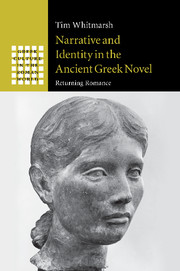5 - Telos
Published online by Cambridge University Press: 03 May 2011
Summary
If desire is the central figure for romantic plot, then closure, consummation, is its aim. The settled marriage that concludes the romances is the telos for which characters and readers alike aim. The ending thus occupies a privileged position in relation to the narrative, as critics of narrative have recognised since antiquity. For Aristotle, the telos is (or should be) both rational and ethical, the merited outcome for a subject of a particular moral complexion. In Barbara Herrnstein Smith's classic study of poetic closure, the end is seen to satisfy a psychological need for structure. For Frank Kermode, the need for closure is a reflex of mortality, both an intimation of the inevitable death of the individual and an attempt to give meaningful shape to the vastness of eternity. Postmodern accounts, by contrast, have seen closure not as the culmination but the abnegation of narrative, fundamentally antipathetic to the free play of textual possibility.
The romance, we have seen, rests upon a flexible but consistent narrative structure. A firm boundary is drawn between settled home life and the turbulent fluidity, insecurity and threat faced by travellers abroad. (Leucippe and Clitophon, which hints at continued turbulence for its protagonist after the end of the narrative proper, subverts this pattern; but subversion also affirms the generic expectation.) This distinction is expressed through the narrative form of the romances: it is the beginnings and ends that are closely identified with secure identity, and the central, liminal phase in the middle with change and uncertainty.
- Type
- Chapter
- Information
- Narrative and Identity in the Ancient Greek NovelReturning Romance, pp. 177 - 213Publisher: Cambridge University PressPrint publication year: 2011



